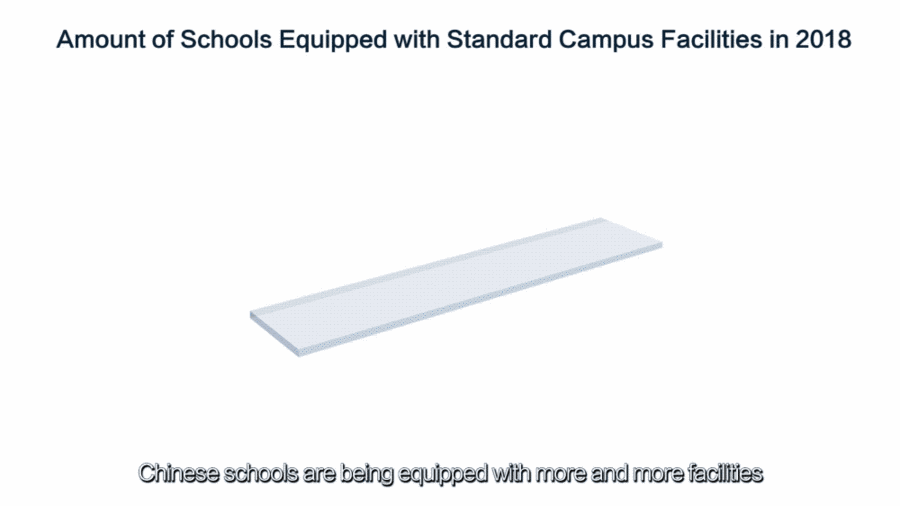Knowledge is power! In 1949, just 20 percent of China's population could read and write -- but that's no longer the case today. In this last episode of our explainer series, we explore #HowChinaCan improve its literacy rate to nearly 100 percent #NewChina70Years
BEIJING, Sept. 25 (Xinhua) -- Education in China has developed rapidly over the past 40 years.
About 80 percent of China's population was illiterate in 1949. Fast forward to today and the net enrollment rate of primary school children is 99.95 percent while the junior high school gross enrollment rate is over 100 percent.

In 2018, there were more than 210,000 compulsory education schools in China, hosting nearly 150 million students, which is nearly half the entire population of the United States.

In 1986, special legislation on education was implemented, which stipulated that all children must receive compulsory education for nine years.
Government expenditure into education has grown rapidly since the start of the new millennium.

China has always believed that regardless of economic difficulties, children's education must never be compromised and that if anyone must suffer, it should never be a child.

China was able to provide nine years of compulsory primary school education for its children in a quarter of the time it took the United States and one sixth of the time it took France.

In the last 10 years alone, the area of schools for compulsory education in China has increased by more than 40 percent.

Education is not just the concern of the government. Other areas of society have also paid special attention to a child's education. Donations to schools and dropout students are highly praised in China.

The teacher-student ratio in primary schools in China has overtaken the average ratio in middle and high income countries.

The biggest challenge for China's education sector is ensuring poor children have access to education.
In China, children from poor families are provided with a number of benefits such as free books and subsidies for boarding school education.

Special records are kept on every family and every school-age child. The government has also provided nutritious food subsidies for rural children.
There is a common Chinese saying that "knowledge changes fate." Chinese people believe that quality.
Keeping every child in school and ensuring there are more high school and college graduates is one of the biggest reasons for China's rapid development.■



